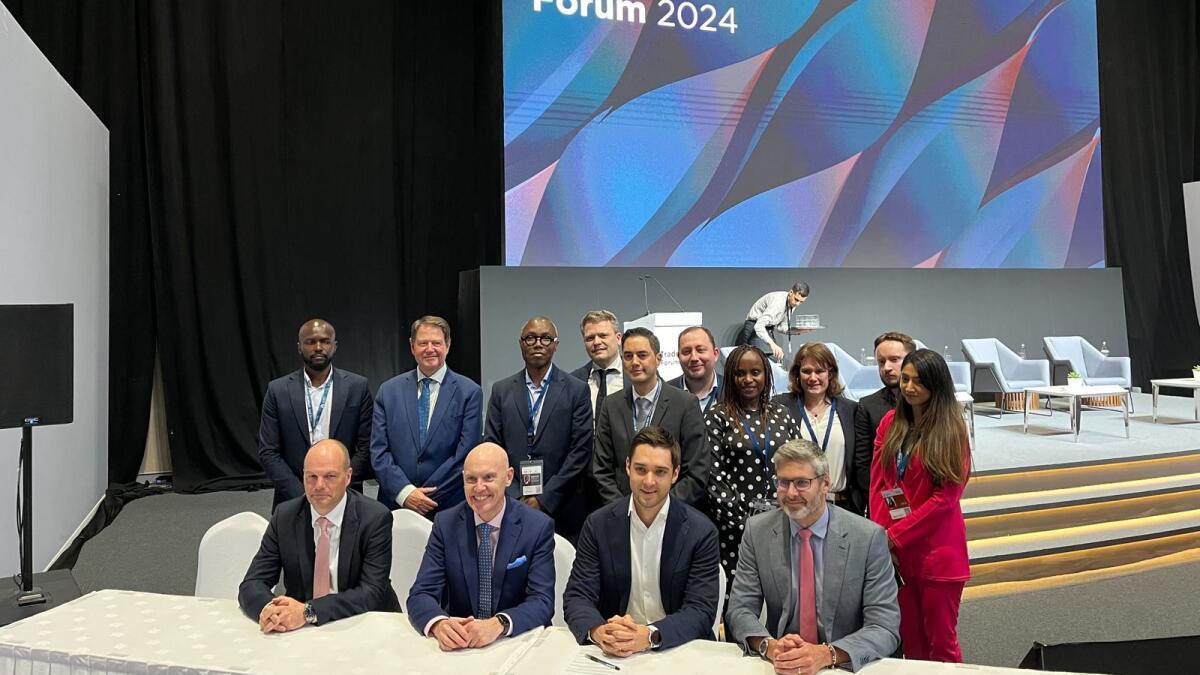
UAE: Landmark Pact Inked At WTO Conference To Boost Digital Trade
The deal seeks to advance a shared vision for the creation of a neutral, open, non-profit and inclusive digital infrastructure for trade data sharing, designed to break down barriers and boost inclusivity and participation by drastically reducing the time and cost associated with cross-border trade.
The Teaming Agreement, reached at the conference, is signed by the World Economic Forum (WEF), the Institute of Export and International Trade (IOE&IT), the Tony Blair Institute for Global Change (TBI), the IOTA Foundation, TradeMark Africa, and the Global Alliance for Trade Facilitation (GATF).
Stay up to date with the latest news. Follow KT on WhatsApp Channels.
The agreement builds on recent successful trials which have successfully reduced costs and process times for supply chains, and is centred on a shared desire to use digital infrastructures to break down barriers to global trade through global collaboration and enhanced open information sharing.
“We are proud to champion the creation of a neutral, inclusive digital infrastructure for trade. This partnership between key international trade organisations pools together a perfect mix of specialism, knowledge and the right balance of tech and trade experts to streamline supply chains and customs procedures,” said Marco Forgione, director general at The Institute of Export and International Trade.
Cocktail of threatsThe agreement comes at a time when global supply chains face an unprecedented cocktail of threats. Attacks on ships are forcing vessels to avoid the Red Sea and Suez Canal, a vital channel for global trade, while drought is also causing delays in the Panama Canal. More broadly, the prospect of a wave of populist victories in elections around the world this year could see a rise in protectionist policies. All this reinforces the need for greater information sharing and collaboration across supply chains.
At the heart of the new agreement is a public global trade infrastructure known as the Trade Logistics Information Pipeline (TLIP). The TLIP platform was developed by TradeMark Africa in partnership with the IOTA Foundation, drawing from experiences implementing TLIP in Kenya and the UK.
Open-source technologyThe TLIP infrastructure utilises open-source technology to streamline information exchange in international trade and promote inclusivity and transparency along the supply chain. This allows everyone to share and consume information while maintaining control of their own data.
Forgione said with the TLIP framework, the institute expects promising outcomes, including up to 80 per cent cost reduction, processing times cut to one day, and a 35 per cent increase in SME efficiency.“Through collaboration, we are committed to shaping a future where trade facilitation benefits societies worldwide, through the creation of a more equitable and sustainable global trade ecosystem and infrastructure.”
The need for a digitally empowered global trade ecosystem is stark. On average, a cross-border transaction requires the exchange of 36 documents and 240 copies, involving up to 30 participants and convoluted trade regulations, leading to challenges such as document loss, information discrepancies and fraud.
Reduce trade transaction costsImplemented successfully, the economic benefits of Tuesday's agreement will be substantial. A new digital infrastructure for global trade could reduce trade transaction costs by 80 per cent, decrease the trade finance gap by 50 per cent, cut cross-border processing times in some cases from 25 days to one day, and enhance SME efficiency by 35 per cent.
Frank Matsaert, global lead - Trade & Infrastructure, Tony Blair Institute for Global Change, said re-imaging trade in the information age is imperative in making global trade work for all.“Innovating a public global digital infrastructure for trade that is inclusive and green that this partnership aims to achieve, resonates with TBI's core goal of reimagining how governments and states deliver services in the 21st Century”.
Tim Stekkinger, head, TradeTech Global Initiative at the World Economic Forum, said exchanging information along the trade supply chain remains a real challenge.“Trust and structured collaboration will be a key to scaling systems and approaches that work across many countries.”
ALSO READ:

Legal Disclaimer:
MENAFN provides the
information “as is” without warranty of any kind. We do not accept
any responsibility or liability for the accuracy, content, images,
videos, licenses, completeness, legality, or reliability of the information
contained in this article. If you have any complaints or copyright
issues related to this article, kindly contact the provider above.


















Comments
No comment